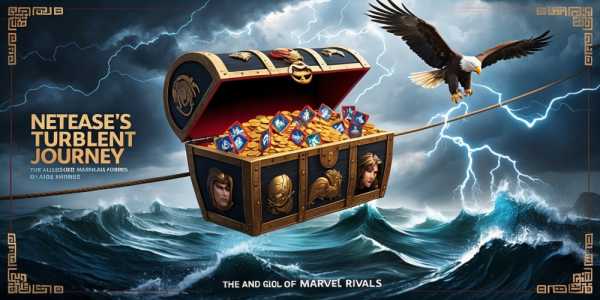NetEase's Turbulent Journey: The Rise and Risk of Marvel Rivals Amid Strategic Overhaul
- 2/24/2025

The landscape of the gaming industry is continually evolving, and NetEase has been making headlines lately due to its fluctuations in strategy. One of the more notable moments involves the game Marvel Rivals, which has achieved remarkable success since its launch. However, internal decisions almost changed its fate.
NetEase's Marvel Rivals has proven to be exceptionally popular, amassing ten million players within just three days and generating impressive revenues for the company. Nevertheless, a recent report indicates that CEO William Ding contemplated discontinuing the project over concerns regarding the costs associated with using licensed characters.
The insights were shared by a news outlet outlining the current climate at NetEase. Ding is reportedly taking significant steps to streamline operations, including job cuts, studio closures, and pulling back on overseas investments. The intent behind these moves is to maintain a more focused and manageable portfolio amidst a decline in growth, in order to stay competitive against dominant players like Tencent and MiHoYo.
One of the strategies Ding pursued involved a reluctance to invest in licensed characters, which almost led to the cancellation of Marvel Rivals. Despite his intentions to encourage the creation of original designs, this potential decision nearly resulted in significant financial losses for the company. Ultimately, the game launched successfully, contradicting the wishes of its founder.
However, NetEase's transition is far from over. Recent layoffs have affected the Seattle team behind Marvel Rivals, with the company citing "organizational reasons" for the cuts. Over the past year, Ding has also shifted away from investments in international projects, previously funding several notable studios, including Bungie and Devolver Digital. Observers suggest that he is now more inclined to pursue ventures that show potential for substantial annual revenue, though a company spokesperson has stated that NetEase does not use arbitrary metrics to assess new game viability.
Inside the company, a troubling picture emerges regarding Ding’s leadership style. Reports highlight that he tends to make swift decisions, frequently alters his direction, and pressures team members to extend their work hours. There are indications of assigning recent graduates to key leadership positions, alongside the troubling reality that numerous projects have been shelved—potentially impacting game releases in the Chinese market for the coming year.
This pullback in game development investment is particularly notable given the current volatile state of the gaming industry, especially in Western markets. The past few years have experienced a wave of job reductions, project cancellations, and studio closures, alongside numerous high-budget games failing to meet company expectations.
Latest Articles
- Ultimate Beginner's Guide to Minecraft: Your First World, Tools, and Secrets Imagine a world where you can build anything you want, fight off monsters, make friends, and discover ancient secrets—all made out of colorful b...
![]()
- Steve Nielsen
- 7/18/2025
- The Legend of Zelda Film Feels Incomplete Without Robin Williams Few video game franchises resonate as deeply and across as many generations as The Legend of Zelda. So, with Nintendo confirming a live-action adaptat...
![]()
- Steve Nielsen
- 7/18/2025
- Destiny 2’s Edge of Fate Brings Major Stat Overhauls and Unexpected Bugs: What You Need to Know Destiny 2 players across the globe are buzzing with anticipation and a bit of anxiety as the The Final Shape expansion ushers in a dramatic period of...
![]()
- Steve Nielsen
- 7/18/2025















